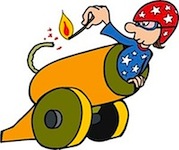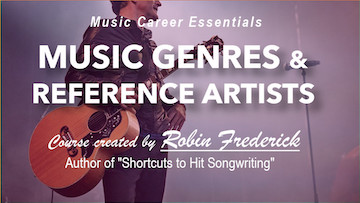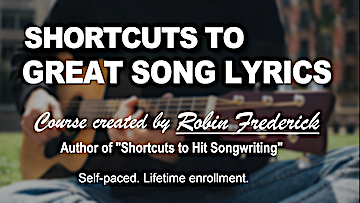We all want to be more creative, have more songs in the catalog, and feel satisfied that we’re getting things accomplished. It’s just that reality doesn’t always work out that way. More often than not…
- We don’t have any good ideas for new songs.
- We’re not sure what kinds of songs we should be writing and for what market.
- We get stuck working on one song that’s in trouble.
- We’re scared our songs aren’t good enough so we don’t finish them.
We all know that good quality has to be maintained, but I bet you could write more songs and keep the quality at the level you want or even improve it. Here are a whole bunch of ideas for writing FASTER and BETTER.
STUDY SUCCESSFUL SONGS

This is the quickest way to solve a lot of the problems I just listed. Spend at least one to two hours per week listening to the top songs in your genre on your favorite stream-on-demand site (Spotify, Apple Music, YouTube Music, etc.). If you’re interested in writing songs for film and TV check out TuneFind.com. Of course, you won’t like everything you hear. You may have to dig a while before you uncover a song you want to learn from. But it’s worth it and it’s an essential part of the job of songwriting.
Too often we think of our songwriting career as only the act of songwriting, but there’s so much more. Laying the groundwork for new songs, learning how others creatively use song craft, getting inspired, feeling like you could beat those songs – all of these are ways you can up your game. Get your ears used to hearing what’s successful out there and your songwriting will improve.
TIP: Here’s an article on my website with a list of resources where you can find successful artists and bands in a range of styles to listen to.
Embed current songs to give yourself an instant feel for the style. When you find a song you like, get a copy of the lyrics. (you can find them online or take them down by ear.) Practice singing along with the track until it’s comfortable for you. This may not be as easy as it sounds. Many current singer-songwriter songs have complex melodies and phrasing. Just learn it one section at a time. If the song isn’t in your vocal range, talk-sing along with it until you get a feel for the rhythm of the melody. These days, the rhythm of the notes is as important as note pitches.
Look up the chords online or take them down by ear and learn to play the song. Sing along as you play to get a feel for how the melody and lyric lines fit into the chords.
The more familiar you are with contemporary chord progressions, lyrics, and melodies, the faster your songs will come together, the quicker you’ll break out of old habits, and the less time you’ll spend wrestling with elements that sound dated or don’t fit into a genre. You want to aim your song toward a genre as early as possible. Embedding the sound of today’s songs physically and mentally will help you target the sound and style you want in your first draft and then keep it on track.
USE TEMPLATES
Here’s a great way to get a head start on your next batch of songs. A template is an outline, something to provide you with a place to begin and a structure for moving forward. Of course, every song will be different. It will express things in a different way, have different problems to solve, and reflect your personal vision and taste. But you can create a template to shorten the process. If you already invented the wheel, why do it again… and again… and again?
RECORDING TEMPLATES: Make it easy to record your ideas. When you record rough ideas or demos on your computer, be sure you have a template file that’s all set up the way you like. All you need to do is flip the ON switch and start singing. Be sure you have your favorite vocal mic plugged in and ready to go. If you found a good vocal sound last time you recorded, be sure all those EQ settings, reverb, and compressors are in place on your vocal track. Same for your guitar or keyboard settlings.
LYRIC TEMPLATES: A great way to start or develop a lyric is to make lists of QUESTIONS, PHRASES, IMAGES, and ACTION words that are suggested by your song’s title or opening line. Keeping a simple text template is a great way to get started or break through a roadblock. Just create a section for each type of raw lyric material:
What QUESTIONS does your title or first line suggest to you?
Describe the SITUATION in short phrases.
What EMOTION are your expressing?
How would you describe that emotion in short PHRASES, IMAGES, and ACTIONS?
Make a list under each heading. While you work on your song, come back to it often. It will feed you new ideas and keep your song from veering off track – something that can take hours or days to discover and correct.
SONG TEMPLATES: If you’re really feeling ambitious, try recording a few different song layouts. Use rhythm loops and chords to indicate verses, choruses, and bridge. Listen to a few karaoke tracks for recent hits and try stripping them down to the essentials. Rough out the tempo, groove, and chords. Later, you can change chords and rhythm as needed. It will give you a place to start and some practice in creating basic song structures. Consider putting together tracks in time signatures that are frequently used: 3/4, 4/4, and 6/8.
LOOK FOR ANSWERS OR PUT IT AWAY
Songwriters spend a lot of time trying to fix things – a chorus lyric that doesn’t have a strong payoff, a melody with high notes that only a dog can hear, or a bridge that takes you so far away from the key you can’t get back again. If you’re banging your head against the wall trying to fix a song with a problem, ask yourself if you’re just spinning your wheels. If you are, consider putting that song aside for awhile. But before you do that, try to solve the problem with a little active R&D – research and development.
1. Listen to successful songs to see how they solved a similar problem.
- Got a boring transition into your chorus? Look at how a few hit songs handle transitions and try that.
- Can’t finish your lyric? Use the Lyric Template suggestion above or check out how your favorite songwriters handle that difficult second verse. Where did they go with it?
- Listening to succcessful songs can remind you that a short, repeated melodic phrase could be just the thing to add tension to your pre-chorus.
These techniques are all used in hit songs and successful Film & TV songs. Spend some time feeding your brain with fresh ideas that could help you solve your problem.
2. Ask yourself what you’re trying to accomplish. What effect do you want to achieve? Think of at least two ways to do that and try both. If you don’t like the result, undo it and start over.
3. If you can’t find a solution, stop trying. Put the song away and come back to it in one week. Listen to the song with fresh ears to see if you really do have a problem after all. If you do, then go through steps 1 and 2 again.

COLLABORATE
Nothing helps pick up your speed like having someone who’s waiting to hear from you. A couple of co-writers can keep you busy at your songwriting instead of opting for the TV. While you can work with someone locally or online, it’s always a good idea to get to know the music scene in your area. Musicians, clubs, studios, open mics, festivals, music stores, and schools, all of these can provide you with valuable resources for writing and recording.
BONUS TIP: Here’s an article that will help you find and work with song collaborators.
P.S. It’s probably NOT about your gear
Songwriters can have a lot of fun playing in their gear, buying new gear, learning new software. Yes, it’s exciting and it can inspire new ideas, but it can also slow your songwriting down to a snail’s pace. Make a deal with yourself. Write three songs and finish them before you buy or learn a new piece of gear. As you learn the gear, keep in mind that its primary use is to support your songwriting and inspire new songs. Before you buy a new piece of gear, ask yourself: How will this help me write better and faster? It’s ALL about the songwriting!
Good luck and may your songs flow… faster and better!
by Robin Frederick


